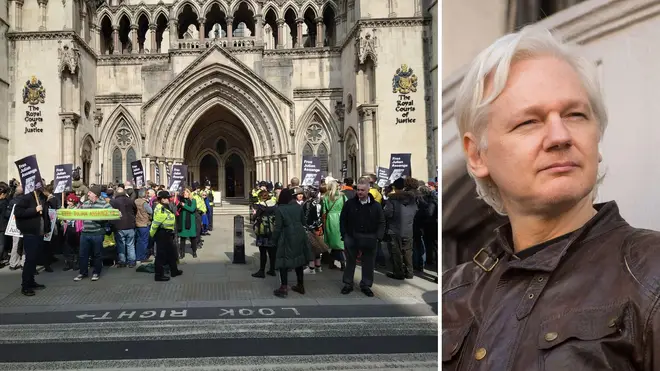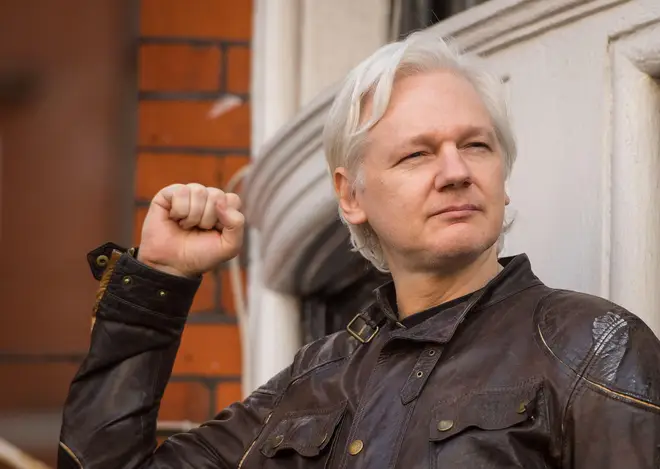
Tom Swarbrick 4pm - 7pm
26 March 2024, 11:32

Wikileaks founder Julian Assange must wait to find out if his final UK appeal against his US extradition can go ahead.
In a ruling this morning, Dame Victoria Sharp and Mr Justice Johnson ordered the US to provide certain assurances, meaning Mr Assange will now not be immediately extradited.
Assange, 52, has been accused of an alleged conspiracy to obtain and disclose national defence information following the publication of hundreds of thousands of leaked documents relating to the Afghanistan and Iraq wars.

Read More: What did Julian Assange do? Why WikiLeaks founder faces US extradition
In a February hearing, his lawyers argued that the case against him was a form of "state retaliation".
Today the judges gave the US authorities had three weeks to give those assurances, with a final decision to be made in late May.
In a 66-page ruling for the Julian Assange case, Dame Victoria Sharp said: “Before making a final decision on the application for leave to appeal, we will give the respondent an opportunity to give assurances.
“If assurances are not given then we will grant leave to appeal without a further hearing.
“If assurances are given then we will give the parties an opportunity to make further submissions before we make a final decision on the application for leave to appeal.”
At the start of Assange’s bid last month, Mark Summers KC argued the US’s prosecution would be retribution for his political opinions, meaning it would be unlawful to extradite him under UK law.
But Clair Dobbin KC, for the US, said the plans to extradite and prosecute Assange are based on his alleged actions, not his political opinions.
The hearing at the Royal Courts of Justice was attended by dozens of journalists and members of the public, with hundreds observing remotely.
Scores of Assange supporters demonstrated outside the central London courthouse over both days, waving banners and inviting passing drivers to honk their horns.